"About 150 Catholic schools have closed, said Kathy Mears, the director of the National Catholic Educational Association, equal to about 2 percent of the 6,183 schools that were up and running last year. The number of closures is at least 50 percent higher this year than in previous years, Ms. Mears said.”
(New York Times, 9/5/2020)
This school year 2020-21, like years past and even more so now, Catholic schools have been experiencing an enrollment decline, particularly at the elementary school level. In a number of dioceses and schools, there has been the “COVID-bump” increase in the number of students. There is hope of retaining these new students and their families for the long term. However, the overall reality is that we continue to lose students and lose schools, too often in geographic areas where they may be needed most.
In our work at Meitler, we are seeing the impact the elementary school enrollment trend is having on Catholic high schools as this traditional feeder system shrinks in size. High schools have begun to reach out and recruit from a broader market area and, in many cases, are now enrolling more students from public and other private elementary schools rather than from Catholic elementary schools. Despite these efforts, it is still a significant challenge to remain viable.
Throughout the country, some high schools have considered expanding their reach to include middle/junior high school grades to not only sustain their enrollment but to also provide another Catholic educational opportunity for those critical years when many elementary schools have fewer students, programs, and resources. And thus begins the delicate balance of changing the grade structure of a Catholic high school at the potential expense of Catholic elementary schools.
A key concern when a high school is considering expanding grades into middle school is the impact on those grades in local Catholic elementary schools. Such a move not only has a potential impact on the elementary school but the parish community as well. It often puts the parish, its elementary school, and the high school in a tense situation and often at odds with one another. This creates what we often refer to as “ecclesial Darwinism” where the one with the most students wins, a situation everyone wants to avoid!
However, some Catholic high schools that have added a middle school present a positive perspective to this situation. What if integrating a middle school program with the high school were to attract more students who are Catholic and were not attending a parish elementary school? What if the impact on the Catholic elementary schools were minimized? What if the impact was actually beneficial, allowing the elementary school with low enrollments in seventh and eighth grades to focus on the higher enrolled primary grades? Could an opportunity to sustain Catholic school education at both the elementary and secondary levels be achieved in a different fashion?
Recently, Meitler conducted an expansion study with Pope John Paul II High School in Hendersonville, Tennessee, Diocese of Nashville. A comprehensive data study and broad-reaching market research survey was conducted to assess the possible enrollment and its potential impact on Catholic elementary middle school programs. Listening sessions were conducted with pastors, principals and parents of the parish schools to provide them with the opportunity to share their insights and concerns as a key element of the study. Needless to say, some pastors and school administrators were highly skeptical of what the results could be.
Interestingly, the feasibility of adding the middle school grades at Pope John Paul II High School found that a majority (62%) of survey respondents’ students would come from area public schools and other private schools. The potential impact of the Catholic schools would be minimal in most cases as many families expressed their loyalty to their parish program. “A good number of families with children in public schools and other private schools in this area … would prefer a Catholic (middle) school option,” said Rebecca Hammel, superintendent of schools for the diocese. “We hope to offer those families this option.”
An essential component in this process is transparency, sharing a rationale, and including key stakeholders such as pastors, elementary school principals, school leaders, diocesan leaders, and parents throughout the study and planning. Building an understanding among the parish, elementary school and high school communities backed up by the data can show a different perspective and provide an opportunity to reach out to more families, Catholics in particular, who are not enrolling in the parish elementary school, but would consider a Catholic education at an integrated middle/high school.

